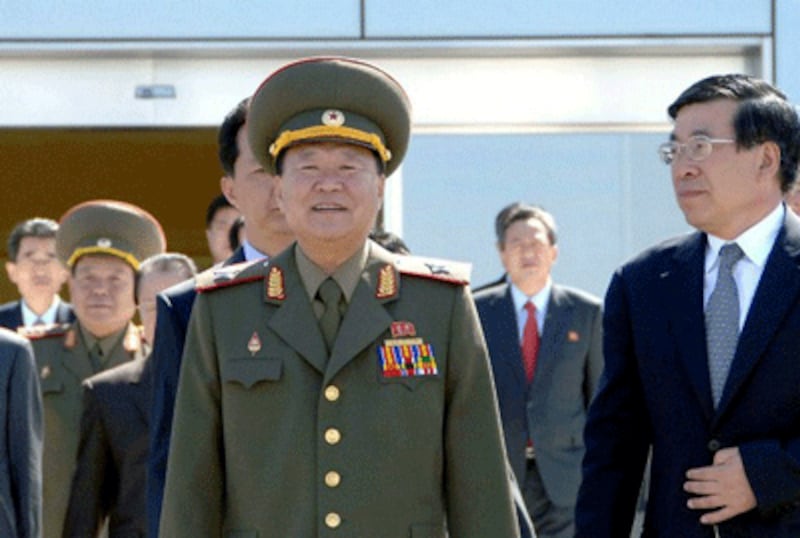North Korean leader Kim Jong Un's uncle Jang Song Thaek, widely regarded as the de facto number two in the reclusive, hard-line communist state, is believed to have been sacked, reports say, in what could be the most significant leadership purge since the young Kim came to power two years ago.
Jang, who according to South Korea's spy agency may have been removed from all posts, including vice chairman of the nuclear-armed country's top military body, the National Defense Commission, is said to have lost out in a power struggle with Choe Ryong Hae, who holds the military rank of vice marshal and is director of the Korean People's Army's General Political Department.
Jang has not been seen publicly since the execution of two of his close aides in November, the National Intelligence Service (NIS) told lawmakers, according to South Korea's Yonhap news agency.
The NIS claimed multiple reliable sources have "independently confirmed" that two of Jang's closest confidants were executed in public late last month, saying the duo were cited for corruption and activities that countered the policies of the ruling Workers' Party of Korea (WPK), Yonhap reported.
Analysts said Jang's removal could be Kim's final phase of consolidating power since he took over from his father, Kim Jong Il, who died after a heart attack in December 2011.
Jang, the husband of Kim Jong Il's powerful sister, Kim Kyong Hui, and often referred to as the unofficial number two in the hierarchy, "was overvalued in the first place," Kim Dong-hyop, a research professor at the Seoul-based Institute for Far Eastern Studies, told RFA's Korean Service.
"This might be the last phase of solidifying Kim Jong Un’s power,” he said.
Tipping the balance

Some analysts suggested that the shake-up is likely to tip the balance in favor of Choe, the top political operative for the army, which could be interpreted as a symbolic victory for the 1.2 million-strong military.
If Choe, who has been the most prominent figure to accompany the junior Kim at public events, was instrumental in removing Jang, there could be radical changes ahead, one analyst said.
"It means that the Kim Jong Un regime will become unstable and there is a possibility for the regime to go through a radical change,” Lee Seoung-yul, a researcher at Ewha Womans University in Seoul told RFA.
South Korea's military said that it did not detect any unusual activities in the North and that North Korean troops were carrying out routine winter-time exercises, Yonhap said.
In May, Kim Jong Un sent Choe as his personal envoy to Beijing to hand-deliver a letter to China's new president, Xi Jinping.
Xi's administration has shown its irritation with Kim after he defied China in ordering a nuclear test in February and the launching of a three-stage rocket in December.
Choe also holds three senior positions: a member of the National Defense Commission, member of the Politburo Presidium of the Korean Workers’ Party, and vice chairman of the Central Military Commission of the party.
Second fallout
This is not the first time Jang had fallen out of favor. In 2004, he was sent for "re-education" as a steel mill laborer because of suspected corruption.
He made a comeback the following year and expanded his influence rapidly after Kim Jong Il suffered a stroke in 2008. Two years later he was appointed vice chairman of the powerful National Defense Commission.
His wife Kim Kyong Hui was promoted to a four-star general at the same time as Kim Jong Un in 2010, a sign of her key role in the family's efforts to maintain its six-decade grip on power.
"Jang's ouster and the public execution of his associates means they had probably formed a significant political clique of their own," Cheong Seong-chang of the Sejong Institute think-tank in Seoul was quoted saying by Agence France-Presse.
"The purge suggests Kim Jong Un has a very strong grip on power and it will lead to more competition within the leadership to showcase loyalty towards the leader," Cheong said, according to AFP.
Reported by RFA's Korean Service. Translated by Bong Park. Written in English by Parameswaran Ponnudurai.
